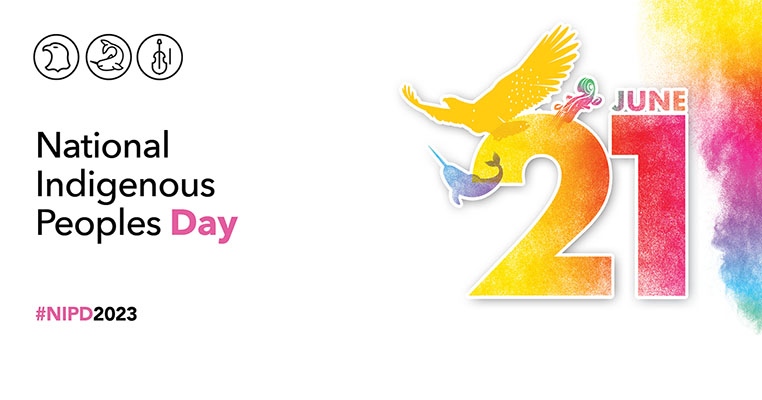Today is National Indigenous Peoples Day. Today we recognize and celebrate the heritage, cultures, and contributions of First Nations, Inuit and Métis peoples.
Formerly known as Aboriginal Day, National Indigenous Peoples Day was first celebrated in 1996 and is now held annually on June 21st. It is celebrated on the summer solstice as a way to give thanks to the Earth and to celebrate the traditions of Indigenous cultures.
Indigenous-Led and Indigenous-Centred Work in FASD
Today we are proud to showcase some Indigenous-led and Indigenous-centred resources and projects that are improving FASD prevention and support from coast to coast.
Manito Ikwe Kagiikwe – Mothering Project, Manitoba
This is a unique program that provides support and resources to women who are pregnant or who have given birth in the last 12 months and are involved with substances. The program helps to provide wrap around supports, including prenatal care, advocacy, support groups, and cultural opportunities. The program evaluation in 2015 found that the Mothering Project reduced the number of children entering care, increased access to health-care services, and reduced substance use.
Indigenous Approaches to FASD Prevention
A series of five booklets exploring Indigenous approaches to FASD prevention through various themes. The booklets include:
- Revitalizing Culture and Healing
- Brief Interventions with Girls and Women
- Indigenous Mothering
- Reconciliation and Healing
- Wellness
- Community Action
Dream Catcher Service Delivery Model, New Brunswick
The team from the New Brunswick FASD Centre of Excellence, in partnership with Indigenous elders, designed an innovated model to help service providers tailor supports to their clients. It places the child and family at the centre of the healing journey, taking the skills and needs of both the client and support system into consideration. This model not only service First Nation communities, but the NB FASD team has also used this approach with other clients across the province of New Brunswick. In 2019 they won the inaugural Claudette Bradshaw FASD Innovation Award for this project.
A Mustard Seed of Hope
A Mustard Seed of Hope is a beautiful new booklet describing culturally grounded approaches within wraparound care for pregnant and parenting women who are dealing with substance use and trauma. It describes the Indigenous cultural programming that is being offered in some wraparound programs, to honour this work and to inspire others who provide community-based services to take up/expand upon these approaches.
Our Commitment to Indigenous Partnership, Reconciliatory Research, and Action
In honour of National Indigenous Peoples Day 2023, we also wanted to share and reaffirm our commitment to Indigenous Partnership, Reconciliatory Research, and Action. As Canada’s only national network focused on fetal alcohol spectrum disorder (FASD), our mission is to conduct and engage in research to inform prevention, diagnostic, and intervention strategies, improved support, and policy action.
At CanFASD, our staff and researchers come from various multidisciplinary backgrounds with expertise in FASD prevention, diagnosis, intervention, justice, and child welfare. Our staff and researchers are committed to:
- Understanding the impact of colonization and subsequent assimilatory policies and practices on intergenerational trauma, substance use, addictions, and FASD.
- Building meaningful partnerships with Indigenous peoples and communities that are based on the values of reconciliation.
- Developing research that is guided by community needs, values, and knowledge systems.
- Advocating for Indigenous-led research through sustainable and long-term funding.
Today, as always, we hope you take the opportunity to celebrate the contributions of Indigenous communities and partners; reflect on your own commitments and responsibilities; and continue to learn and grow.
